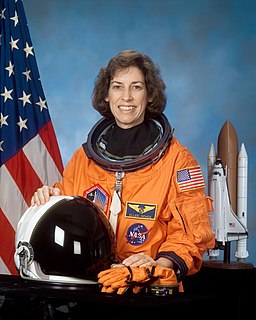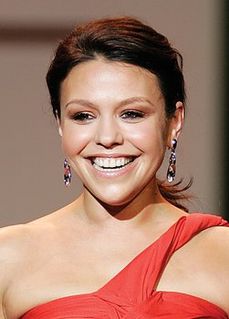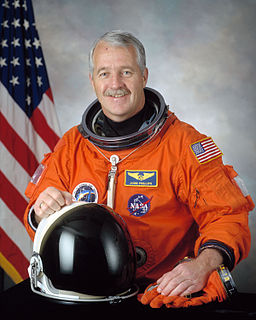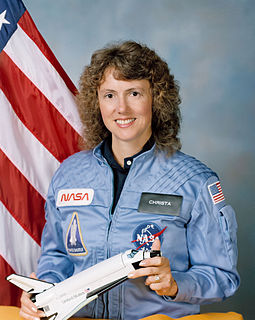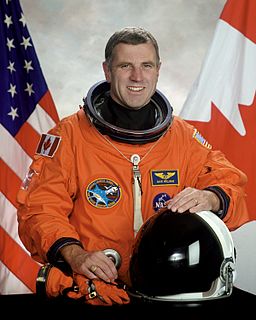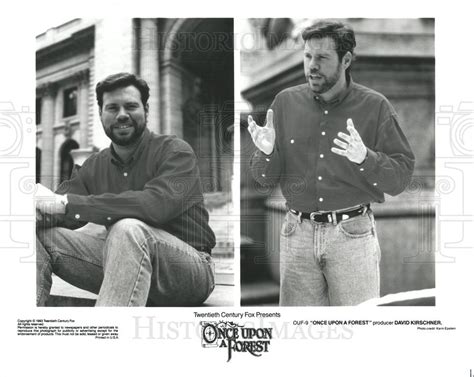A Quote by Ellen Ochoa
Well, with so many space shuttle missions that we've done, I think it's just sort of natural that each one hasn't necessarily gotten the attention that the early ones did.
Related Quotes
The bottom line is 2018 should finally be the year where we see the early stages of broad-based commercial space tourism appear. Demand will certainly be driven by the early successes or failures of those missions, the marketing of those missions, as well as the propensity for tourists to become repeat flyers.
There's a huge amount of pressure on every astronaut, because when you get right down to it, the experiments that are conducted on a space flight, or the satellites that are carried up, the work that's to be done, is important and expensive work, and you are up there for a week or two on a Space Shuttle flight. The country has invested a lot of money in you and your training, and the Space Shuttle and everything that's in it, and you have to do things correctly. You can't make a mistake during that week or two that you're in space.
The most important thing about an astronaut is you have to take for a given a person's done pretty well in school, has the intelligence and all of that to learn new systems and new things. But after that, the most important thing I think is being able to get along with others. Flexibility and teamwork, those issues because as we fly longer and longer in space, those are really important factors, even on short shuttle missions, those are important factors, to put a crew together that can work together effectively as a team, that can get along.
In 2009 I went up on the space shuttle. I was in space for 16 days and docked at the space station for 11 days. The entire crew did five space walks, of which I was involved with three of them. When you're doing a space walk, you always have a buddy with you. It's a very dangerous environment when you're doing a space walk.
'As a fraction of your tax dollar today, what is the total cost of all spaceborne telescopes, planetary probes, the rovers on Mars, the International Space Station, the space shuttle, telescopes yet to orbit, and missions yet to fly?' Answer: one-half of one percent of each tax dollar. Half a penny. I'd prefer it were more: perhaps two cents on the dollar. Even during the storied Apollo era, peak NASA spending amounted to little more than four cents on the tax dollar.
When I first went to Hubble, as an astronomer and as a scientist, it was a dream come true. And as an astronaut, the Hubble missions are premiere missions because Hubble is so important to science, so important to humanity, that it's just a very special event. But as an astronomer, it was sort of the holy grail of missions.
On my second space walk, I was riding the Canadarm, heading down toward the payload bay of the space shuttle, and I could see the space shuttle highlighted against the Earth in the background, and there was this black, infinite, hostile void of space. I remember looking down at the Earth and thinking, "Beneath me is a 4½-billion-year-old planet, upon which the entire history of the human species has taken place." That was an incredibly humbling moment, and I had a bit of an epiphany.
The Russians have been flying long duration crews since the early '70's. And in the early days, they've ended at least two missions early because of conflicts within the crew. So, they learned early on the importance of studying this and making sure you put the right crew together. Since we began our work together on the International Space station with the Russians in the early 2000's, NASA has started to learn the importance of this kind of work. And so, I think it's important work and we are not fully onboard and recognize it as important.
Define the space horizontally rather than vertically in movie widescreen, 2.35:1 just having that rectangular shape and when you think of great horror movies like Halloween and Jaws that just really exploit the space so well and I just think we would have so many more opportunities in creating suspense and shocks.
